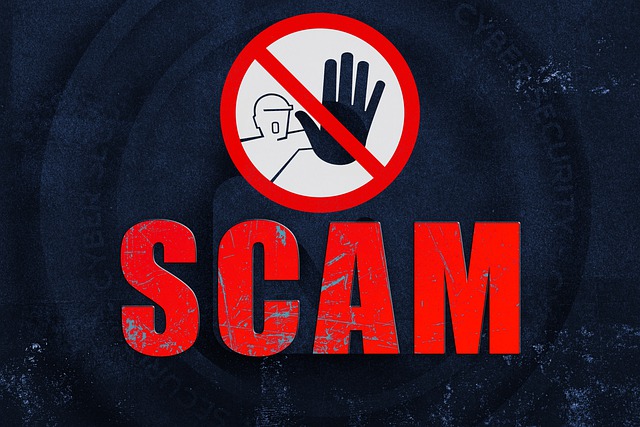
How common are scams that target the elderly?
Common Scams That Target Seniors. This is just one example of the many scams that target the elderly. A report from the U.S. Securities and Exchange Commission (SEC) estimates that roughly 5 million senior citizens become victims of fraud or financial abuse every year. A recent report by True Link Financial found that seniors lose $12.48 billion to scams each year. It happens everywhere not just America.
1. Social Security Scams
Common Scams That Target Seniors. The Social Security Administration (SSA) warned of an upsurge in calls from con artists posing as SSA employees. Sometimes, they even use spoofing technology to make it appear the call is coming from the SSA’s real phone number.
The callers tell their victims, or “marks,” that their Social Security number (SSN), has been “suspended” because it’s been connected with a crime or other suspicious activity. In some versions of the scam, they threaten marks with arrest or other legal action if they don’t call a bogus phone number to resolve the problem. In others, they say the victim’s benefits will be suspended if they don’t call to “reactivate” the SSN.
Identity theft
All of these threats are hollow. The real SSA almost never calls people who haven’t contacted it first, and it never makes threats about legal action over the phone. Typically, what the scammers really want is to get hold of the mark’s SSN for purposes of identity theft. In other cases, they tell victims they need to protect their assets by transferring all their savings to gift cards and giving the fake agent the code, which gives them immediate access to the money.
According to the FTC, bogus Social Security calls are now the most common type of government imposter scam. In one 12 month period the FTC received more than 76,000 reports of this type of fraud. Most victims did not lose money, but those who did lost a lot — typically around $1,500.
2. Medicare Scams
Common Scams That Target Seniors. There are several different scams related to Medicare. Most of them start out the same way as the Social Security scam: The con artists call up seniors and pose as Medicare representatives. They then try a variety of different tactics, including:
- Asking victims to “verify” their Medicare number, which the scammers then use to bill Medicare for services the victims never received. Sometimes, they ask for credit card numbers as well.
- Telling them they must pay a fee to receive a new or upgraded version of their Medicare card. But there’s only one type of Medicare card, and it’s free.
- Warning them their Medicare card has been compromised and they must move their money into “safer” accounts. By doing this, of course, the marks place their money under the scammer’s control.
- Telling them they need to sign up for a Medicare Part D plan, which covers prescription drugs, in order to keep their other benefits.
Con artists are always coming up with new variants on this scam. For instance, in July 2019, the FTC reported on a variant in which scammers tell marks Medicare is offering free DNA test kits, but they must provide their Medicare number to receive one.
3. Counterfeit Prescription Drug Scams
Common Scams That Target Seniors. The rising cost of prescription drugs has put a squeeze on seniors, who tend to take more of them than the average person. To save money, some seniors look for cheaper versions of their meds at online pharmacies. This can be a sound strategy if the pharmacy is legit, but many online sellers are actually dealing in counterfeit drugs.
Counterfeit medicines aren’t the same as generic drugs. Using generics, which contain the same active ingredient and dosage as name brands, is a good way to save money on health care costs. Counterfeits, by contrast, bear the name of a real medicine, but the actual contents of the bottle are one of the following:
- Old or expired versions of the medicine
- Look-alikes that contain a different active ingredient or no active ingredient at all
- Copies that have the right active ingredient, but at the wrong dose
At best, these phony meds won’t actually treat the user’s condition. At worst, they contain unsafe ingredients that threaten the user’s health. The Food and Drug Administration has put out alerts about fake versions of Cialis, Botox, and several cancer drugs within the past few years.
4. Fake Anti-Aging Products Scams
Common Scams That Target Seniors. Counterfeit medicines aren’t the only phony products being marketed to seniors. According to the FBI, there are also counterfeit versions of many cosmetics and other “anti-aging” products.
These fake products often contain harmful chemicals such as arsenic, cadmium, beryllium, and dangerously high levels of aluminum. They can also be contaminated with harmful bacteria. Phony cosmetics have been known to cause eye infections and skin problems like acne, psoriasis, and other rashes.
5. Funeral Fraud Is A common Scam
Common Scams That Target Seniors. Some of the most vicious scams are the ones that prey on the recently bereaved. After a death, widowed spouses and other near relations are at their most vulnerable. Even people who normally wouldn’t fall for a scam aren’t likely to be thinking clearly — and con artists move in quickly to take advantage of them.
One common con relates to funeral costs. By law, consumers are allowed to select only the specific items and services they want for a funeral, without being forced to purchase unwanted add-ons to get these items and services. However, unscrupulous funeral homes don’t always disclose this information. They try to sell their bereaved customers services that aren’t required by law, such as a casket or embalming for direct cremation, or tell them that certain items are only available as part of an expensive package deal.
Cemetary Scam
A related con is the cemetery scam. The con artists offer seniors the opportunity to buy cemetery plots for themselves in advance and take the burden off their families. However, after their death, the family discovers the plot is worth much less than the senior paid for it or doesn’t exist at all.
Another type of scam isn’t directly related to funerals, but it centers around bereavement. Scammers check the obituary sections of small-town newspapers, then contact a recently widowed spouse to claim that their late husband or wife owed them thousands of dollars. They threaten the grieving spouses with lawsuits, eviction, and public shaming if the debt isn’t paid. Often, they follow up with an offer to “settle” for an immediate, steeply discounted payment on a debt that doesn’t exist in the first place.
6. Phone Scams
Common Scams That Target Seniors. According to the National Council on Aging, senior citizens are about twice as likely to make purchases by phone as Americans in general. That makes them particularly vulnerable to telemarketing scams.
Scammers call seniors and try to trick them into handing over their credit card information for bogus products and services. For instance, they try to tempt their victims with offers of low-cost vitamins, health care products, and vacation deals. The victims pay up, but the promised goods never arrive.
Free Givaways
Some phone scammers don’t claim to be selling anything. Instead, they say they have something to give away. They tell marks they’ve won a free gift, vacation, or other prize. However, to receive it, the mark has to pay a fee for taxes, postage, and handling, or some other charge. Of course, there is no gift, and the fee goes straight into the scammer’s pocket.
To make matters worse, victims of this scam can be targeted for a second phone scam later on. Scammers keep “sucker lists” of marks who’ve fallen for the free gift scam and sell them to other con artists. After a while, the victims receive another call, this one offering to help them “recover” their lost money. Also, to claim the prize they never received for a fee, of course.
There are real companies that help people recover missing money. However, you can tell you’re dealing with a phony if the caller demands a fee in advance. By law, people who recover lost money for you can’t claim a fee until seven days after delivering the money to you.
7. Internet Scams
Common Scams That Target Seniors. A 2017 Pew survey found that senior citizens today are using the Internet more than ever. About two-thirds of adults over 65 go online, and over 40% own smartphones. However, only 26% of people in this age group say they feel “very confident” in the digital realm. This combination of significant Internet use and limited digital skills makes seniors likely targets for the numerous email and Internet scams floating around.
Online scams that often target seniors include:
- Phishing Scams. In a typical phishing scam, hackers send out an email designed to look like it comes from a business the mark deals with regularly. They employ various tricks to get the mark to click on a link or disclose personal information, such as passwords. They use this to steal the victim’s identity, gain access to their computer, or steal money directly. Many seniors aren’t Internet-savvy enough to know about phishing scams and how to avoid them.
Malware is very active at this time
- Malware. Anyone who’s been using the Internet for long has learned not to click on suspicious links or pop-up windows. These links can open up your computer to malware — harmful software such as viruses, worms, spyware, adware, and ransomware. However, seniors are less likely to be cautious about unknown links or to employ other tools to protect their machines. Such as firewalls and antivirus software.
- Sweetheart Scams. As older people start using online dating sites at higher rates. Hence, they run the risk of falling for online romance scams. The scammers connect with lonely people online and move fast to establish a bond with them. Then they use that bond to extract money from the victims to deal with a series of fake emergencies. from a lost wallet to a sick pet. A 2016 Wall Street Journal article relates the story of one 79-year-old man who handed over more than $700,000 to his so-called sweetheart over a two-year period.
8. Investment Scams Against Seniors Are Common
Common Scams That Target Seniors.There are many types of investment scams, from Ponzi schemes to pump-and-dumps, that target anyone who has money to spend. However, the SEC has identified several scams that tend to focus on seniors in particular. These include:
- Charitable Gift Annuities. A real charitable annuity is a type of investment in which a donor gives a large sum to a charity. In return, the charity provides the donor with a fixed income stream for the rest of their life. However, many seniors are unknowingly putting their money into fake charitable annuities. There is no actual charity to receive the money. Instead, it goes straight into the seller’s own account.
Risk Free there is nothing that is risk free where money is involved
- “Risk-Free” and “High-Return” Investments. In investing, risk and return tend to go hand in hand. Any investment that promises great returns with little or no risk is almost sure to be a fraud. The same goes for any investment that claims to be 100% risk-free. Seniors are more likely to fall for this type of promise because they tend to be more risk-averse than other investors.
- Phony CDs and Bonds. Two types of low-risk investments that often appeal to seniors are certificates of deposit (CDs) and bonds. Shady dealers take advantage of this by selling seniors CDs and bonds that don’t deliver the promised yield or, in some cases, don’t even exist. In 2006, the SEC filed a complaint against fraudsters who sold $3.9 million worth of fake CDs to investors, then diverted the money into a Ponzi scheme.
- Promissory Notes. Promissory notes are a type of debt investment. An investor lends money to a company for a fixed period of time, and the company pays it back with interest. Some promissory notes are legitimate investments, but those sold to individual investors are often fakes. Seeking a guaranteed return, investors lend their money to companies that aren’t real.
Sale and Leaseback
- Sale and Leaseback Contracts. Sale and leaseback is an arrangement in which one party sells an item to a buyer and then leases it back from them. The item can be a property or a piece of equipment, such as a pay phone or ATM. In a phony sale and leaseback contract, the scammer sells an investor an item that doesn’t exist. Often they promise to buy it back after a period of time, a promise they don’t intend to keep.
- High-Pressure Sales. Shady investment advisors use high-pressure sales seminars to pitch their investments. They hold a meeting at an upscale hotel, provide free food, and then attempt to pressure investors into making a hasty decision. That’s bad enough, but sometimes the investments being sold at these seminars aren’t even legitimate. Investors may actually be putting their money into a Ponzi scheme or simply into the seller’s personal account.
- Prime Bank Schemes. In this scam, the con artist offers investors the chance to purchase and trade “prime bank” investments on secret overseas markets. They often claim these are special deals normally reserved for top Wall Street financiers or that investors can double their money with little risk. In reality, neither the investments nor the markets themselves exist.
9. Reverse Mortgage Scams
A reverse mortgage can be a useful way for people over 62 to turn their home equity into a source of regular monthly income. However, when seniors see ads for reverse mortgages in their mail, on a billboard, or on a flier posted at their church, they should be wary. The people advertising these services are often con artists trying to steal the seniors’ home equity or to use them to steal someone else’s.
Reverse mortgage scams can involve Seniors:
- Mortgage Relief. Sometimes, seniors who still have a balance on their existing mortgage seek a reverse mortgage as a way to get caught up on their mortgage payments. Scammers prey on these desperate seniors by billing their services as a way to stop foreclosure. They may offer a “100% money-back guarantee” or say they can get fast approval on a loan in exchange for an upfront fee. These bogus companies then pocket the money from the reverse mortgage instead of putting it toward the first mortgage.
- Phony Investments. Shady financial advisors encourage seniors to take out a reverse mortgage and put the money into an investment, such as an annuity or an insurance product. Typically, they promise high returns. However, the investments are either bogus or come with high fees that line the advisor’s pockets.
House Flipping Scams Are Common
- House Flipping. Salespeople persuade seniors to use the proceeds from a reverse mortgage to buy another house, then flip that house for a quick profit. However, there’s no guarantee the second property will actually increase in value. Even if it does, the fees involved in the two real estate transactions — buying the house and selling it — could eat up any profits.
- Home Repairs. A person knocks on a senior’s door, claiming to be from a home repair company that’s offering a free consultation. They recommend a series of pricey, unnecessary repairs and suggest a reverse mortgage to pay for them.
10. Lottery or Sweepstakes Scams Are very Common
In this scam, seniors receive a message telling them they’ve won a lottery or sweepstakes, such as the Australian lottery. However, before they can collect their winnings, they need to pay some sort of fee. Scammers offer all sorts of different reasons for this fee, including import duties, shipping and handling, or insurance. Sometimes they even tell victims they must pay a travel agent to arrange transportation so they can collect their winnings in person.
The con artists usually tell the mark to send the money by wire transfer or a prepaid debit card, such as Green Dot. If the mark complies, the scammers often come back with requests for more and higher fees. According to the True Link report, one victim spent 75% of his life savings on these fake fees before learning his lottery win wasn’t real.
Bank Numbers
In other cases, the scammers ask the mark to provide a bank routing number so they can transfer out the money for the fees. This gives scammers full access to the victim’s account, which they can loot at will. Sometimes, they also request other personal information, which they use for identity theft.
Another version of this scam is a variant on the old returned check scam. The mark receives a check for their “winnings” right away, then is instructed to wire back some money for fees. The scammers get the transferred funds right away, while the victim ends up with nothing when the check bounces.
11. Grandparent Scams Affect Many Seniors
If you want a senior citizen to panic and stop thinking clearly, tell them one of their grandchildren is in trouble. That’s exactly what con artists do in the grandparent scam.
They call up an older person and greet them as “Grandpa” or “Grandma.” Sometimes, they’ve used social media to find out the name of one of the mark’s actual grandchildren. In other cases, they say something like “It’s your favorite grandchild” or “Can you guess who this is?” to trick the mark into revealing a name. They often call at night when victims are likely to be sleepy and confused so they won’t notice their “grandchild’s” voice sounds different.
Once they’ve convinced the mark it’s their grandchild on the line, they explain that they’re in trouble and need money immediately. They give various reasons for this request, such as:
- They’ve been in an accident and need money for repairs
- They’re behind on their rent and in danger of eviction
- They’ve been arrested for drunk driving
They ask the mark to send money right away, usually by wire transfer or prepaid card. Another variant on the scam, reported by the FTC in 2018, asks victims to send cash by mail, UPS, or FedEx. Typically, the scammers tell the mark to divide the bills among several envelopes and put them between the pages of a magazine. Both these methods are untraceable, so the victims can’t recover their money.
Please Don’t Tell
Another hallmark of this scam is that the con artists try to stop the senior from verifying their story. The so-called grandchild begs the victim not to call their parents, often saying, “They’d kill me if they knew.” One senior targeted by this scam says the impersonator warned him that he could be arrested and fined if he told anyone about the call, according to the FTC.
Fortunately, it’s easy for a concerned grandparent to circumvent this scam. All they have to do is call their grandchild back on their real phone number. Within seconds, they can learn that their grandchild is OK and avoid being scammed themselves.
12. Charity Scams
All charity scams are particularly nasty because they take advantage of the mark’s desire to help others. These scams often pop up in the wake of a natural disaster, such as a hurricane. Fake charities solicit funds to help the victims of a disaster, but not one penny of the money they collect ever reaches these victims.
Charity scammers solicit funds by phone, email, social media, or even in person. Sometimes, they give their phony charities names that sound similar to real ones and set up websites to make them look legitimate.
Fake Charities
However, usually only a little research is needed to tell that the charities are bogus. For one thing, their names won’t show up on reliable sites like Charity Navigator or the BBB Wise Giving Alliance. A simple Google search of the charity’s name with the word “scam” or “complaint” is likely to turn up lots of hits. That’s why the scammers often stress the urgency of the crisis and press their marks to give now, so they won’t take the few minutes needed to discover it’s a fake.
Even worse, some scammers prey on the actual victims of natural disasters. They pose as government workers from an agency like the IRS or FEMA, offering to help victims file claims and get tax refunds. This allows them to get hold of the victims’ personal information, which they use for identity theft. This scam is a double whammy for people who have already suffered a huge financial loss.
In Conclusion
So from this the you must learn to double check. So then, when you are contacted by phone or computer, double check who they are, use your own stored numbers to call back. Don’t reply to email links, check online for who they say they are, banks, companies, government organisations will not worry when you offer to call back. However scammers will try to rush or panic you. And if that happens they are suspect do not fall for it
Important Note *
Remember that everyone is different, and it is ultimately YOUR RESPONSIBILITY to find what your body responds to. So please do your due diligence before trying anything new, including getting Medical Advice to ensure your safety and peace of mind.
Connect with me and leave a comment or two on my social media.












2 replies on “Common Scams That Target Seniors”
Very informative and thanks for educating me. Senior from Sri Lanka.
Hi Hemachandra, Thank you and you are very welcome, these scammers create misery and leave some older adults in poverty, so anything I can do that helps my subscribers protect themselves, I will always try to do, all the very best, Ian